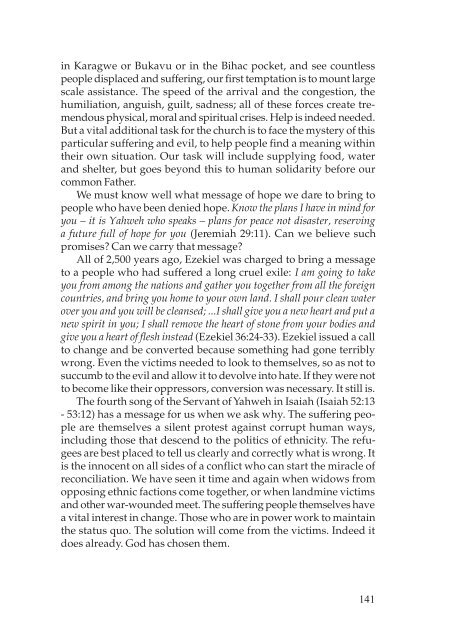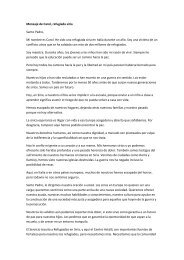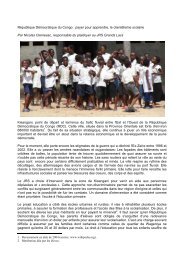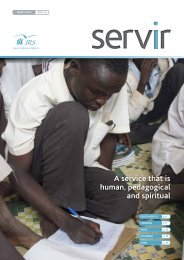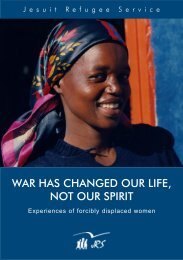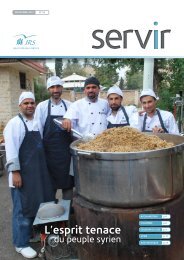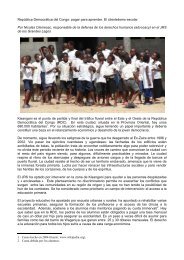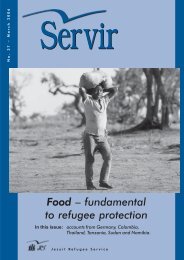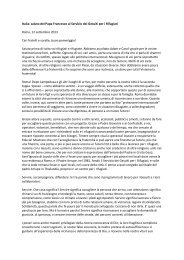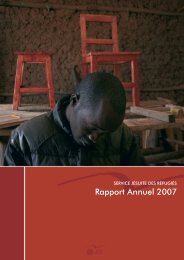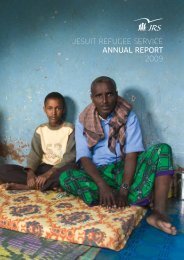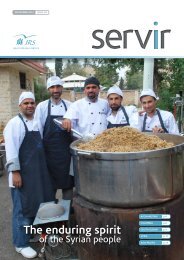EVERYBODY'S CHALLENGE - Jesuit Refugee Service | USA
EVERYBODY'S CHALLENGE - Jesuit Refugee Service | USA
EVERYBODY'S CHALLENGE - Jesuit Refugee Service | USA
Create successful ePaper yourself
Turn your PDF publications into a flip-book with our unique Google optimized e-Paper software.
in Karagwe or Bukavu or in the Bihac pocket, and see countless<br />
people displaced and suffering, our first temptation is to mount large<br />
scale assistance. The speed of the arrival and the congestion, the<br />
humiliation, anguish, guilt, sadness; all of these forces create tremendous<br />
physical, moral and spiritual crises. Help is indeed needed.<br />
But a vital additional task for the church is to face the mystery of this<br />
particular suffering and evil, to help people find a meaning within<br />
their own situation. Our task will include supplying food, water<br />
and shelter, but goes beyond this to human solidarity before our<br />
common Father.<br />
We must know well what message of hope we dare to bring to<br />
people who have been denied hope. Know the plans I have in mind for<br />
you – it is Yahweh who speaks – plans for peace not disaster, reserving<br />
a future full of hope for you (Jeremiah 29:11). Can we believe such<br />
promises? Can we carry that message?<br />
All of 2,500 years ago, Ezekiel was charged to bring a message<br />
to a people who had suffered a long cruel exile: I am going to take<br />
you from among the nations and gather you together from all the foreign<br />
countries, and bring you home to your own land. I shall pour clean water<br />
over you and you will be cleansed; ...I shall give you a new heart and put a<br />
new spirit in you; I shall remove the heart of stone from your bodies and<br />
give you a heart of flesh instead (Ezekiel 36:24-33). Ezekiel issued a call<br />
to change and be converted because something had gone terribly<br />
wrong. Even the victims needed to look to themselves, so as not to<br />
succumb to the evil and allow it to devolve into hate. If they were not<br />
to become like their oppressors, conversion was necessary. It still is.<br />
The fourth song of the Servant of Yahweh in Isaiah (Isaiah 52:13<br />
- 53:12) has a message for us when we ask why. The suffering people<br />
are themselves a silent protest against corrupt human ways,<br />
including those that descend to the politics of ethnicity. The refugees<br />
are best placed to tell us clearly and correctly what is wrong. It<br />
is the innocent on all sides of a conflict who can start the miracle of<br />
reconciliation. We have seen it time and again when widows from<br />
opposing ethnic factions come together, or when landmine victims<br />
and other war-wounded meet. The suffering people themselves have<br />
a vital interest in change. Those who are in power work to maintain<br />
the status quo. The solution will come from the victims. Indeed it<br />
does already. God has chosen them.<br />
141


